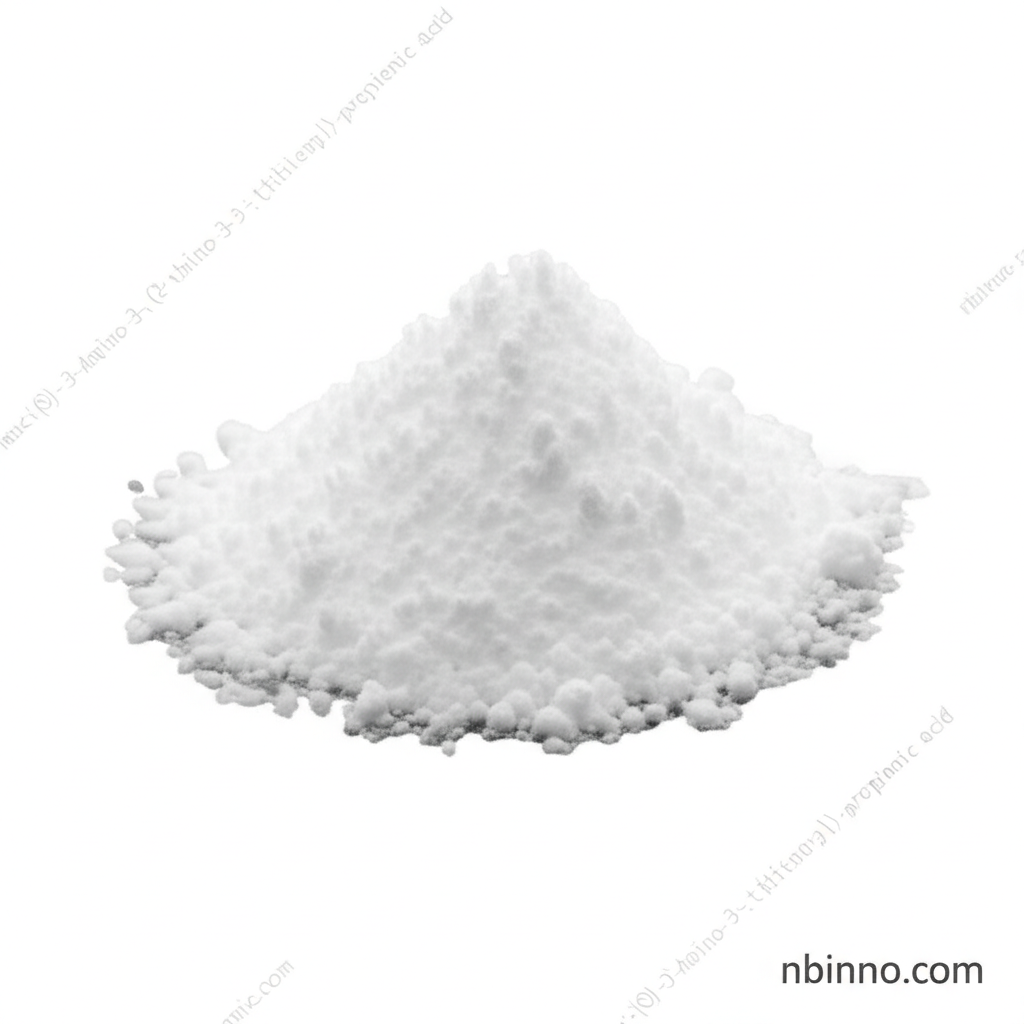Fmoc-(S)-3-Amino-3-(2-thienyl)-propionic Acid: A Vital Component in Advanced Chemical Synthesis
Discover the critical role of Fmoc-(S)-3-Amino-3-(2-thienyl)-propionic acid in modern peptide synthesis and pharmaceutical research. As a specialized building block, its unique thienyl structure offers significant advantages for developing novel therapeutics. We are a leading supplier in China, offering high-purity compounds for your critical projects.
Get a Quote & SampleUnlock Advanced Peptide Structures with High-Purity Fmoc-(S)-3-Amino-3-(2-thienyl)-propionic Acid

Fmoc-(S)-3-Amino-3-(2-thienyl)-propionic Acid
As a premier manufacturer and supplier of fine chemicals in China, we offer Fmoc-(S)-3-Amino-3-(2-thienyl)-propionic acid, a non-natural amino acid vital for sophisticated peptide synthesis. Its Fmoc protecting group allows for efficient deprotection under mild conditions, facilitating complex molecular assembly. Explore how this building block can enhance your research and development, and secure your supply from a trusted source.
- High Purity for Reliable Peptide Synthesis: Our Fmoc-(S)-3-Amino-3-(2-thienyl)-propionic acid is supplied with a purity of 97%+, ensuring consistent results in demanding peptide synthesis applications. We are a dependable manufacturer for your bulk needs.
- Enhance Bioactivity with Thienyl Moieties: The unique thienyl side chain of this amino acid derivative is crucial for designing peptides with improved stability, solubility, and pharmacological properties, accelerating your drug development timeline.
- Streamlined Synthesis Processes: Leverage the Fmoc protecting group for facile and selective deprotection, crucial for efficient Solid Phase Peptide Synthesis (SPPS). Purchase quality intermediates from our China-based facility.
- Support for Drug Discovery and Development: This compound is a key intermediate for researchers aiming to create novel therapeutic agents and explore new biological pathways, making it an essential material for pharmaceutical R&D.
Key Advantages of Sourcing Our Fmoc-(S)-3-Amino-3-(2-thienyl)-propionic Acid
Superior Purity and Quality Assurance
We are committed to providing Fmoc-(S)-3-Amino-3-(2-thienyl)-propionic acid with exceptional purity. Our rigorous quality control ensures that each batch meets the stringent requirements for pharmaceutical intermediates, making us a preferred supplier for your critical synthesis projects.
Expertise in Custom Synthesis and Bulk Supply
As a leading chemical manufacturer, we offer flexible solutions from research quantities to bulk orders. For those looking to buy in larger volumes, inquire about our competitive pricing and reliable supply chain for your manufacturing needs.
Technical Support and Reliable Delivery
Our team provides expert technical support to assist you with the application of Fmoc-(S)-3-Amino-3-(2-thienyl)-propionic acid. Benefit from our efficient logistics and dedicated customer service for timely deliveries, ensuring uninterrupted research and production.
Versatile Applications in Advanced Research
Peptide Synthesis
Fmoc-(S)-3-Amino-3-(2-thienyl)-propionic acid is a critical building block in Solid Phase Peptide Synthesis (SPPS), enabling the incorporation of unique thienyl residues into peptide chains for modified functionality and enhanced properties.
Drug Development & Medicinal Chemistry
Its structure makes it invaluable for creating novel drug candidates, particularly in pharmaceuticals and medicinal chemistry, where the thienyl group can improve pharmacokinetic profiles and therapeutic efficacy.
Bioconjugation & Targeted Delivery
This compound can be utilized in bioconjugation strategies, aiding in the attachment of biomolecules for targeted drug delivery systems and diagnostic tools, enhancing precision in therapeutic applications.
Neuroscience Research
Researchers in neuroscience leverage such compounds to study protein-ligand interactions and develop agents that target specific neurological pathways, contributing to advancements in understanding and treating neurological disorders.
